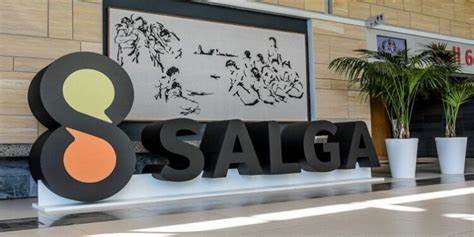THE South African Local Government Association (SALGA) expects President Cyril Ramaphosa in his February 8 State of the Nation Address (SONA) to send a positive signal to the local government sector that municipalities, and the challenges confronting them will be taken into consideration and solutions advanced.
In addition to attending the SONA on behalf of the sector, SALGA President Bheke Stofile will also lead a delegation of local government representatives, including SALGA delegates in the National Council of Provinces (NCOP), for the SONA debate.
SALGA’s Stofile says: “We expect that President Ramaphosa will emphasise the importance of cooperative governance as the cornerstone of our government structure, acknowledging that the role of local government in development is crucial to the advancement of our country.”
Local government is carrying 46% of the duties specified in the constitution and has been granted a distinctive status and a role in advancing socio-economic growth and democracy. In this regard, SALGA expects that the following will be taken into consideration in the SONA.
The Census 2022 provided crucial insights into the demographic landscape of South Africa, shedding light on population distribution and growth trends. One of the standout revelations was the concentration of population within urban centers, particularly the finding that 17 cities in South Africa collectively host half of the nation’s population. This concentration the significant role these urban areas play in shaping the socio-economic fabric of the country.
The impact of this demographic concentration on local government cannot be overstated. With such a large portion of the population residing in urban centers, municipalities face unique challenges in providing essential services, infrastructure, and resources to meet the needs of their residents.
The strain on infrastructure, housing, transportation, healthcare, and education systems in these urban centers is evident, requiring innovative solutions and strategic planning from local governments to ensure sustainable development and equitable access to services for all residents.
Supporting municipalities in addressing these challenges is paramount to fostering inclusive growth and development across South Africa.
The White Paper on the funding model envisaged that Local Government, in addition to its own revenue, it would have access to an equitable share of nationally raised revenue. However, municipalities currently receive 9.9% of nationally raised, which could be significantly improved.
The revenue-sharing mechanism, specifically the Local Government Equitable Share Grant (LGES), is insufficient and hinders the sector’s ability to carry out its constitutional obligations, including providing basic services to indigent households.
In the context of declining property rates and tariff revenues and increasing expenditure on bulk service costs, local government is operating in an unsteady environment and requires more financial support if it is to address the social and economic challenges people are facing.
SALGA would like to hear President Ramaphosa address the inadequate funding of local government from the national budget.
The substantial increase in municipal debt to R305.8 billion by the end of December, representing a 17% rise compared to the previous year’s R261.5 billion, as reported by the Treasury, is an indication of the mounting financial challenges facing local government. This concerning trend highlights several critical issues that need urgent attention.
SALGA has through the relevant Inter-Ministerial Committees advance for comprehensive reforms and proactive interventions to strengthen the financial sustainability of local government. Addressing these challenges is a matter of urgency to avoid the financial catastrophe in many of our municipalities.
Coalitions are no longer a new phenomenon in South Africa and there has been a lot of discussion and lamentation regarding the problems that come with them, but no concrete solutions have been offered. SALGA has led the way in advocating for both short-term and long-term solutions in this regard.
SALGA recognises that while challenges within coalitions are significant, dwelling solely on these challenges without proactive solutions hampers progress. Instead, SALGA advocates for a forward-thinking approach that focuses on addressing immediate concerns while also laying the groundwork for sustainable, long-term solutions.
Although SALGA recognises the many positive developments over the past three decades of democracy, it is still concerned about the rising rates of violence and intimidation directed towards council members and other municipal officials, as well as the destruction of municipal property during protests over service delivery. As the election season draws near, SALGA urges President Ramaphosa to prioritise municipal officials’ and council members’ safety.
Improving roads and infrastructure for local government in South Africa is essential for economic development, social cohesion, and the overall well-being of communities. SALGA has been marshaling the sector to adopt climate-resilient infrastructure following extreme weather events which have become increasingly common in various parts of the country.
Coastal erosion prevention, sustainable water management, and enhanced drainage systems are just a few of the climate resilience measures that municipalities are incorporating into their infrastructure projects.
South Africa can make significant strides in improving roads and infrastructure, thereby enhancing the quality of life and driving sustainable development across communities.
As South Africa commemorates 30 years of democracy and SALGA celebrates 27 years of the organisation’s founding, the path toward change has not been without difficulties in service delivery.
Although there has been remarkable some progress, there is still more to be done to address the policy gaps, budgetary constraints, and backlogs in infrastructure that make it challenging for the sector to meet the increasing needs of communities across the nation.
Municipalities serve as the front-line providers of services to people, communities, businesses, and the government. Refuse collection, sanitation, electricity, and water delivery have all advanced since 1994. Current statistics show that 89% of households in South Africa have access to water, and 85% have access to electricity.
SALGA remains committed to inspiring service delivery collaboratively with the government to ensure the delivery of services to the citizens of South Africa.

